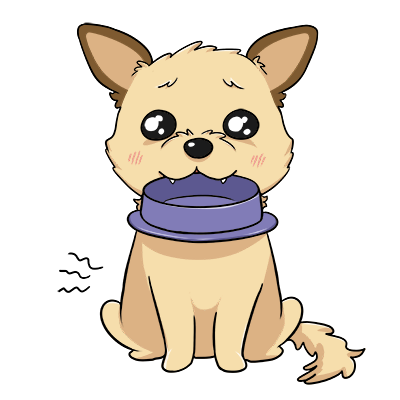Why Do My Dog's Paws Smell Like Doritos? (And Other Random Facts About Paws)
Jul 19, 2018

In talking with my sisters and mom, who also have dogs, we somehow got on the topic of our pups (I know, crazy!) and why their paws always smell like Doritos. Now, first of all you might think that we are a little crazy because who goes around smelling their dog’s paws. But I can assure you that we in fact did not suffer from strokes or go insane. We simply notice the corn chip smell of our pups’ paws when they decide to cuddle with us on the couch or in bed. And we were amused to find that these “Dorito paws” as we dubbed them were not mutually exclusive to our own dogs, but in fact common among several of our friend’s pooches as well. So why exactly do some dog’s paws smell like Doritos and others not?
The Dorito or corn chip smell on some dog’s paws can be attributed to natural bacteria found on their paws. So most of the time there isn’t anything to be concerned about. Remember, dogs can sweat through the pads on their paws just like how people sweat through their feet. The sweat (and bacteria) from the paw pads becomes trapped in the coat and between the pads and therefore leaving a distinct Dorito smell on the feet.
[promo]
Some people claim that the corn chip odor comes from a poor diet or cheap dog food because it often has corn as the main filler. They also claim that switching to a less corn based diet with a more premium dog food can help reduce the smell, but that is not usually the cause of the Dorito paws. But a higher quality food can lead to many other amazing benefits in your dog’s overall health.
So the short answer to this often mysterious question is that your dog’s Dorito paws are likely a result of his or her natural odor and nothing to be concerned with. And if you are like me and don’t mind the smell then there isn’t really any additional grooming to be done. If, however, you find the scent of Doritos in the morning a little less than pleasant there are things you can do to help cut down on the stench. Here are just a couple easy ways to help cut down on that corn chip odor:
Wash your dog’s feet thoroughly when giving him/her a bath. Rub the shampoo between the pads of the paws really well and make sure to get the fur between their toes. Remember that the sweat and bacteria that causes the Dorito smell get trapped in the fur.
Trim the fur between your dog’s paw pads regularly to leave fewer places for the bacteria and sweat to collect.
If the smell is out of control and strong you might want to consider consulting with your vet and make sure it isn’t a symptom of an underlying problem such as a yeast infection or other skin condition.
Random Facts About Your Dog’s Paws
- The pads of dog’s paws are largely made up of fatty tissue which is why they’re feet tend to not get cold when they traipse through the snow. Just don't be out in the snow for too long and watch out for frost bite!
- Dog paws can get rough and sore just like human feet. Treat your pup to a pawdicure with some all natural paw balm from The Woof Warehouse!
- Your dog’s paws are the only place in the body where there are sweat glands.
- When dogs stand or walk they carry most of their weight on their toes rather than their heels. Humans on the other hand carry most of our weight on our heels when we walk and stand.
- Certain dog breeds have evolved slight differences in their paws based on what they were historically used for. For instance, Saint Bernards and Newfoundlands, who were developed in cold climes were bred to have wide, sprawling paws to help grip the snow and ice. While dogs like Labs and Newfoundlands, which were used for retrieving ducks and other fallen waterfowl, were specifically bred to have slightly webbed feet for more efficient swimming.
- Your dog’s dew claws (the claws or toes located higher up on your dog’s foot/leg) are remnants of thumbs and while most pooches have them on their front paws there are some that have them on the back as well. Our Watson has both front and back dew claws.
- If your dog is chewing his/her feet he/she might be stressed. This behavior can result in infections and other issues if the chewing becomes excessive. Talk to your vet if you find the paw chewing to be a little too intense.





